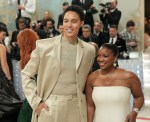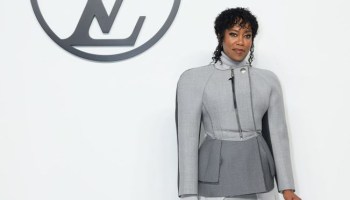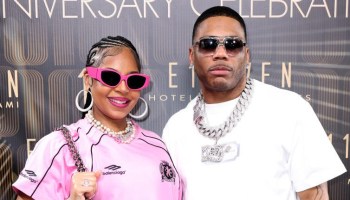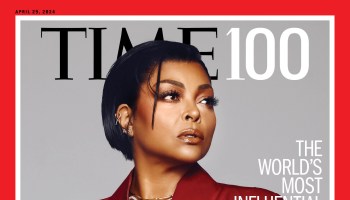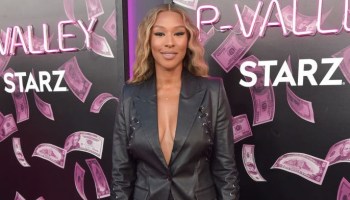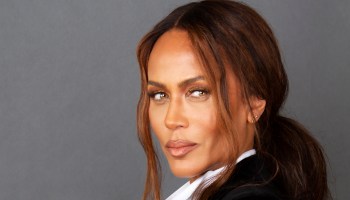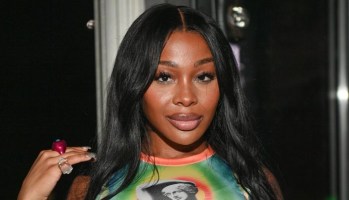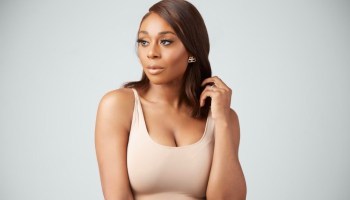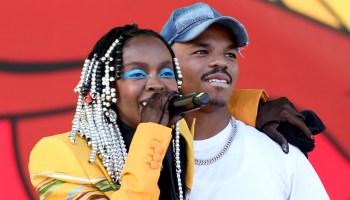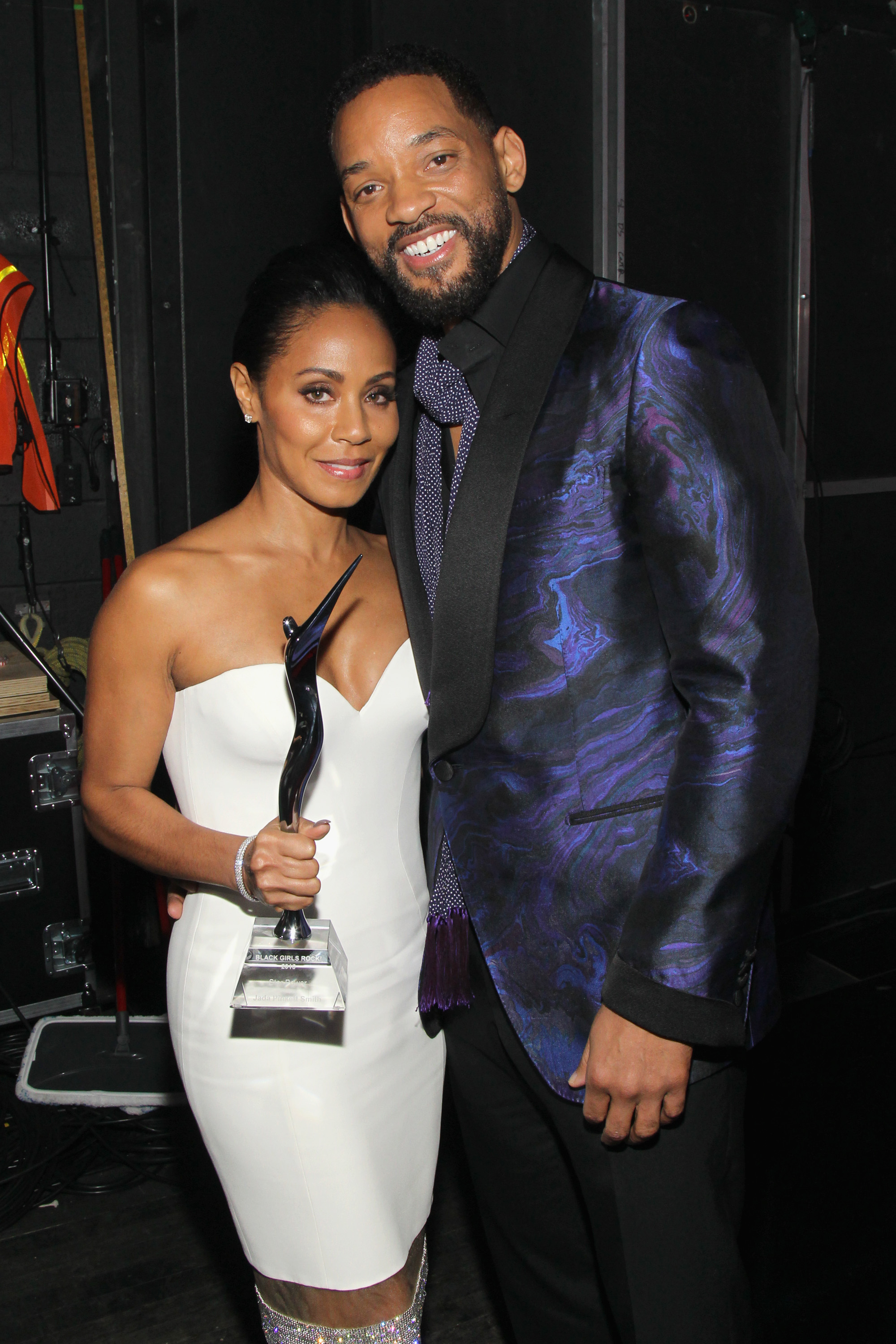
Source: Bennett Raglin/BET / Getty
If Black people know how to do anything in the United States of America, it’s fight multiple battles at once. We can care about the Flint, Michigan water crisis and the upcoming Roe v. Wade anniversary, all while screaming #BlackLivesMatter and boycotting the 2016 Academy Awards.
We’re Black like that.
This is why Janet “there are more important things happening” Hubert’s reply to Jada Pinkett-Smith’s call to boycott the Oscars is so baffling.
In light of the Oscar nominations not including any Black actors and actresses, and the reemergence of #OscarsSoWhite, Academy president Cheryl Boone Isaacs said that she was “heartbroken and frustrated” by what appears to be stalled progress. Pinkett-Smith echoed those sentiments. And in a video invoking the spirit of #ReclaimMLK, the veteran actress, activist and philanthropist spoke her truth:
Today is Martin Luther King’s birthday, and I can’t help but ask the question: Is it time that people of color recognize how much power, influence, that we have amassed, that we no longer need to ask to be invited anywhere?” “Begging for acknowledgement, or even asking, diminishes dignity and diminishes power. And we are a dignified people, and we are powerful,” she said. “So let’s let the Academy do them, with all grace and love. And let’s do us, differently.
Hubert, whose vendetta against the Smiths is legendary, immediately replied with the shadiest rant to end all shady rants:
The Academy has the right to acknowledge whomever they choose, to invite whomever they choose and now I think that it’s our responsibility, now, to make the change.
The petty isn’t immediately evident until Hubert mentions Will Smith not having much time to advocate for Black people when contract negotiations came around for the Fresh Prince of Bel-Air Cast; nor, opines Hubert, were the Smiths too interested in boycotting Hollywood when Mr. Fourth Of July was still in demand and Jada was still setting it off.
First Aunt Viv comes for the Smiths character and their entrepreneurial efforts. And after a few “Miss Things” and “bitches, please,” something hit me: In Hubert’s quest to call out the Smiths for what she clearly perceives to be hypocrisy, her reply allows little room for critique or actively calling out the Academy for its lack of diversity. She leaves no room for nuance or holding things in tension.
She made it clear that calling for a boycott isn’t her concern; if it were, she would have mentioned Spike Lee’s boycott. Her concern lies in the Smiths boycotting and taking pot shots at a throne she doesn’t believe they deserve.
While I’m an advocate of being #PettyIn2016, I’m not comfortable with celebrating what’s happening here. It isn’t healthy, and I’m willing to call it toxic and poisonous. It is more than possible to call out the Academy for lack of inclusion while also “making a change” that Hubert so passionately seeks—in fact, it’s necessary. We should be able to admit that Hubert’s personal feelings are getting in the way of what could be a critical conversation about white acceptance and validity—or in this instance, wanting to win an Oscar—and personal accountability of supporting Black people and businesses.
Let’s be clear: Wanting to be recognized in your craft is a legitimate thing that shouldn’t be diminished.
Although Boone Isaacs has attempted to bring new changes with respect to diversity, the makeup of the Academy is still mostly older white men. And since we know that there is rarely any impetus for them to change, it is our responsibility to speak out against the clear privilege and cronyism at play. Diversity is important; Hollywood being the center is no different. Just like #BlackOnCampus was created to discuss the racism Black people experienced on Predominately White Institutions (PWIs), #OscarsSoWhite is a necessary platform to express the obvious and blatant rejection of Black artistry as art.
We can support our own art while also not wanting that art to be consistently rejected by mainstream media. Wanting to win an Oscar isn’t proof-positive of white acceptance, and wanting an Oscar also doesn’t mean that a NAACP Image Award isn’t good enough.
What’s better than winning one award? Winning two.
I hope that Hubert understands that it is possible to validly critique a person’s position without condescension—and no that’s not tone-policing. We all say things when pain is present—particularly if that pain has been publicly and privately boiling over for twenty years. Just as Hubert has a right to express her pain, we have a right to reject it as personal, vindictive, and counterproductive. And while I will consistently push back on assigning the “bitter” moniker on any Black woman because it disallows expressing emotions and places her into an “Angry Black Woman” trope, Hubert’s response is not moving us forward.
Despite her misguided opinion, Pinkett-Smith is not a mere component of husband. She is not a conduit through which Hubert can funnel her frustration against Will Smith. Though Smith has now joined his wife in boycotting the Oscars, Jada Pinkett-Smith is not Will Smith.
Of course we can always assume that Pinkett-Smith didn’t boycott last year under the same whitewashed conditions that are present this year was because Will Smith wasn’t nominated for Concussion.
So what?
Many people who are rightfully upset about rape culture often say, “What if it was your mother?” This is because we know the personal is political, and this resonates more with people. Not to mention that many parents—even some of you reading this—only care about gender equality because they have daughters. And let’s not pretend that parents of LGBTQ children have always been supportive of equality regarding sexual orientation and gender identity.
What we shouldn’t do is allow Hubert or anyone else to pretend that Pinkett-Smith hasn’t consistently advocated for Black people, especially girls and women. She has started and contributed to charities to combat sex trafficking of young girls; she has created a documentary that discusses human rights and even testified before the U.S. Senate in 2012 to raise awareness around this issue. And in her spare time, she donated close to $1 million a few years ago and, along with her husband, was named to Forbes Magazine “Most Generous Celebrities” list.
Hubert came with a check that she thought Pinkett-Smith would bounce; but not only is her account full, she has receipts and (secured) lines of credit.
Iconic feminist Audre Lorde once said, “There is no such thing as a single-issue struggle because we don’t live single-issue lives.” This means that there is room for both Hubert’s critique of Black Hollywood’s complicity in perpetuating exclusion and Pinkett-Smith’s calls for racial and economic divestment. And maybe, just maybe, if Hubert tries again without weaving her 1990s beef with Will Smith throughout the narrative, we could all have a better understanding of what it will take for Black lives to matter always—and in all ways.
Preston Mitchum is a Washington, DC-based essayist, activist, and policy nerd. He has written for the Atlantic, Ebony.com, Huffington Post, Think Progress, and theGrio. Follow him on Twitter here to see just how much he appreciates intersectionality.







